The 6 best aftersun lotions you can rely on to soothe and repair sunburnt skin
Designed to relieve discomfort, our beauty team deem these tried and tested aftersun formulas essential for the summer months
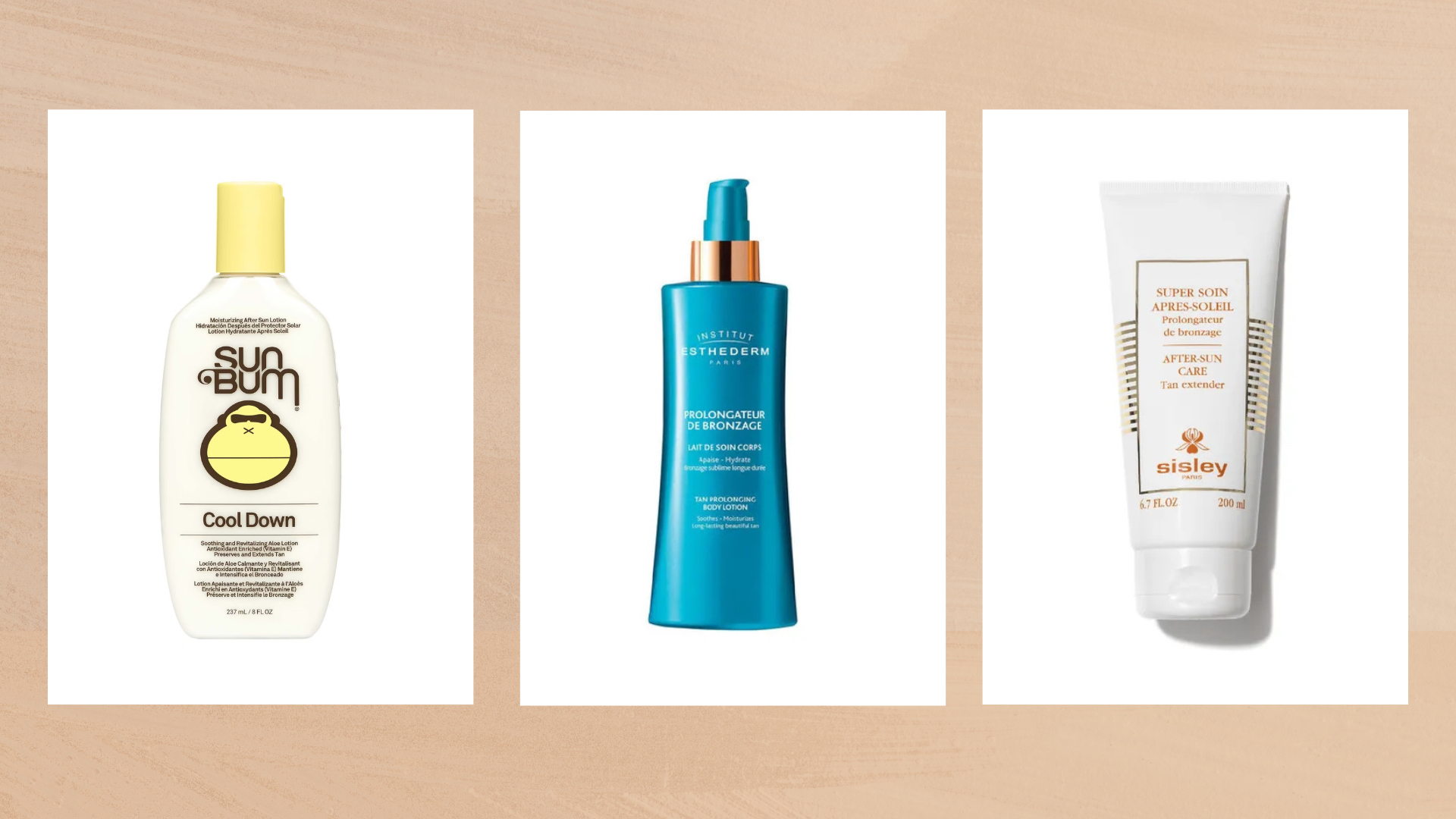

Lucy Abbersteen
A holiday staple – and probably a nostalgic-smelling beauty buy for many of us – the best aftersuns work to nourish and rehydrate parched skin, as well as providing a dose of cooling relief if you've been caught out by sunny weather. These balms, lotions and creams are practically essential during the summer months or when visiting sunnier climes.
Of course, it goes without saying that applying one of the best facial sunscreens every day is a non-negotiable, as well as applying it to any areas of exposed skin on the body – especially in hot weather. “Sun damage caused by UVA radiation is practically irreversible as it damages the skin at a DNA level, which is hard to undo,” says Dr Catharine Denning, aesthetic doctor and the founder of the Marylebone Skin clinic. If, however, you do experience a degree of sunburn (we’ve all been there), it’s important to support the skin in healing itself. This is where aftersun lotion comes in – to help you learn how to treat sunburn with ease.
“A good aftersun lotion can calm and soothe sun-exposed skin,” says Dr Sophie Shotter, aesthetic doctor and the founder of the Illuminate Skin Clinic. “Regardless of whether you’ve burnt your skin or not, aftersun will help to restore a healthy moisture balance,” she continues. In the market for a moisturising and soothing cream? Turn to our edit of the best aftersun lotions, tried, tested and reviewed by our team of experienced beauty journalists.
The best aftersun lotions, reviewed by our beauty team
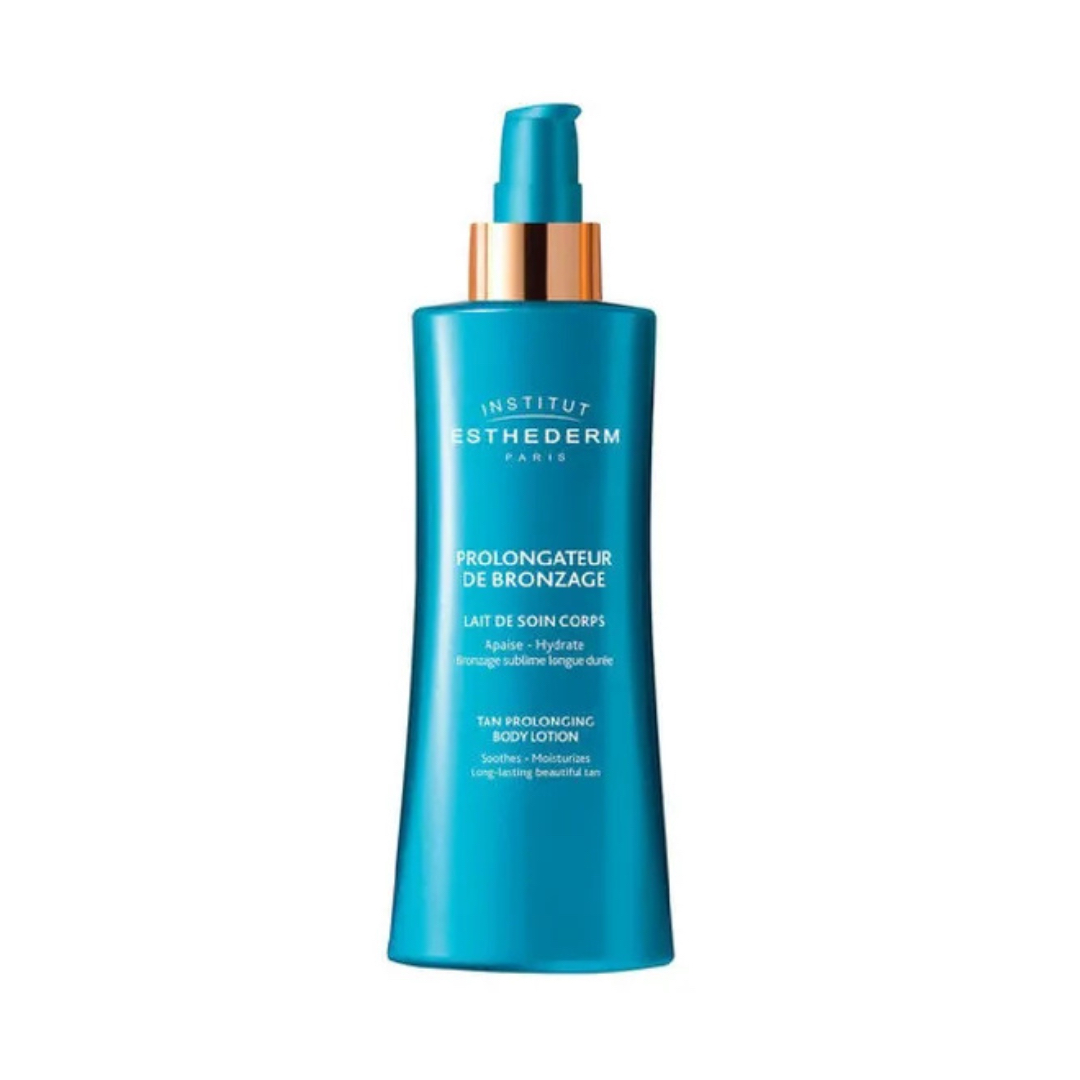
Reviewed by: Emma Stoddart
RRP: £49 for 50ml | Texture: Milk | Key ingredients: Glycerin, lanolin, water
When it comes to skincare, French beauty brands are a cut above the rest and this aftersun lotion from Institut Esthederm is no exception. Getting our vote for one of the best skincare products around, this is a fuss-free and non-irritating formula that's suitable for pretty much everyone. We found the lightweight fluid has a milky texture that soaks in seamlessly without feeling sticky or greasy. Instead, our skin felt soft, supple and instantly soothed. It's also Dr Shotter's go-to, who says: “I am a huge fan of the Insitut Esthederm Aftersun Repair, which gently soothes the skin and makes it feel cooler and nourished."
As well as providing instant relief, the aftersun lotion hydrates skin that has been scorched in the sun and increases skin’s tolerance to later exposure. Clever! We also love that you can apply it to both the body and face, which cuts down on precious packing space when taking it on a trip. We liked the ease of application, too; simply spritz it onto sun-exposed skin and massage it in. And while the milk itself is fragranced, we love the super-subtle scent and it shouldn’t be an issue for anyone.
Buy if: You want a soothing milky texture and something that can be used on both the face and body
Avoid if: You're on a limited budget; this is pricey for the size
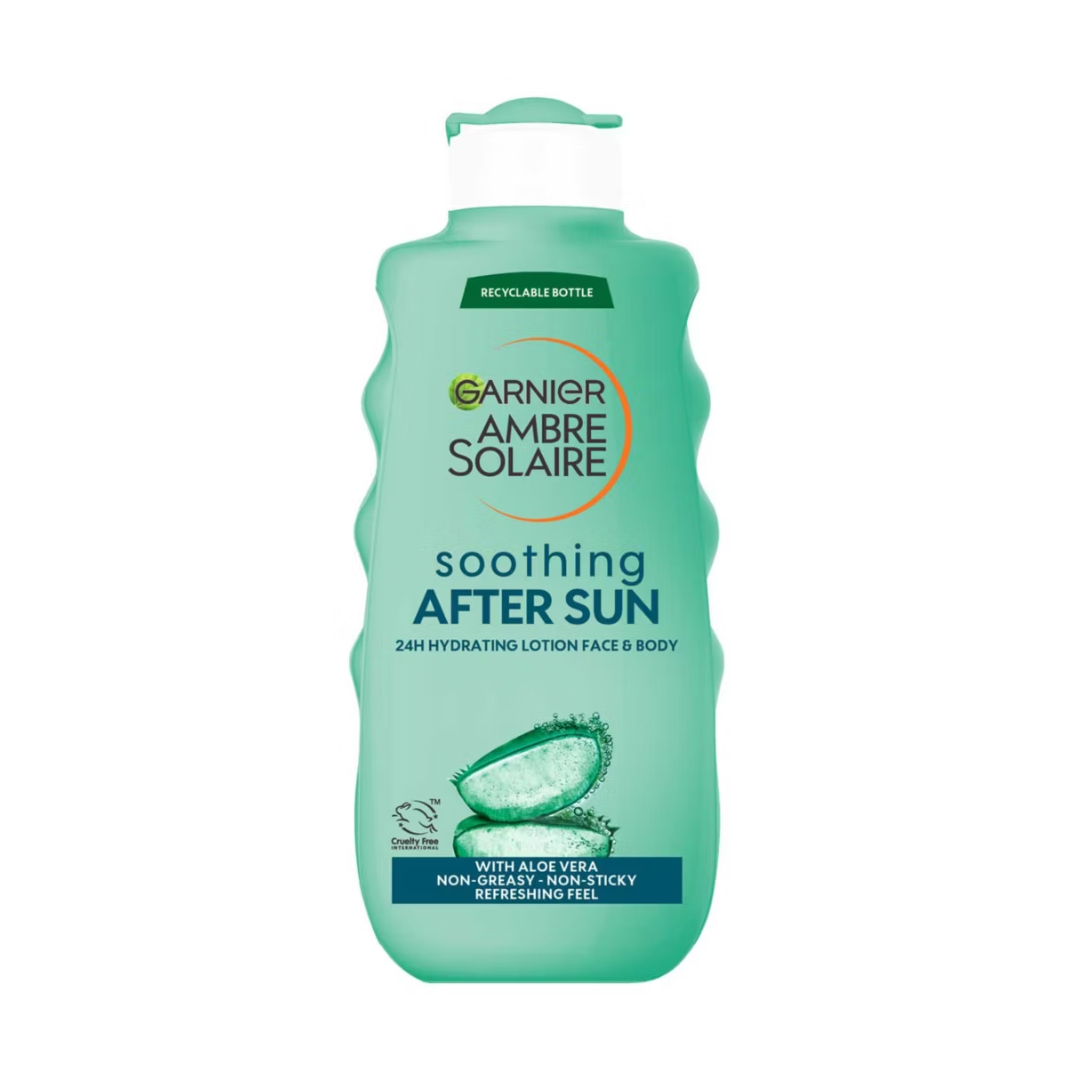
Reviewed by: Emma Stoddart
RRP: £6 for 175ml | Texture: Lotion | Key ingredients: Aloe Vera, shea butter, glycerin
Aloe Vera is one of the most popular skincare ingredients that’s renowned for its anti-inflammatory and skin cooling properties. Hence why it plays a starring role in so many aftersun lotions. Find it in abundance in this purse-friendly pick from Garnier that’s racked up hundreds of five-star reviews. Loved for its refreshing texture, this formula is a total joy to apply – sinking into the skin quickly, cooling it down as it goes.
Thanks to Aloe vera and glycerin (a humectant), it’s also super hydrating and, according to the brand, provides 24 hours of hydration. While we can’t validate this precise claim, we can say that our skin felt nourished and smooth after application. Our top tip? Store this aftersun in the fridge for an extra refreshing boost – you’ll thank yourself after a hot summer’s day. The only downside worth mentioning is that this product does contain fragrance, which, though it gives off a lovely scent, may be irritating for some.
Buy if: You want an affordable, hydrating product
Avoid if: You like luxe packaging; this doesn't look particularly premium
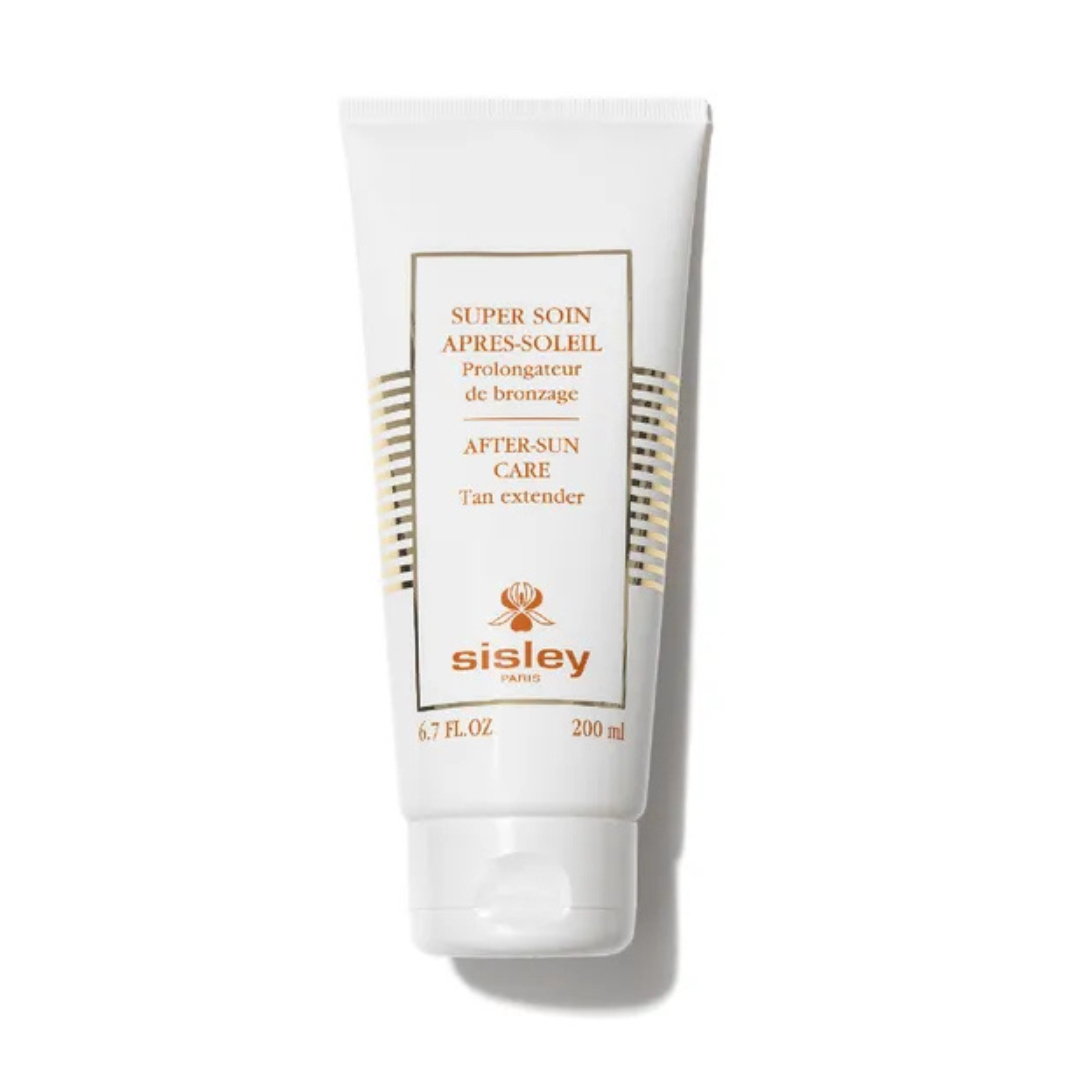
Reviewed by: Emma Stoddart
RRP: £142 for 200ml | Texture: Cream | Key ingredients: Sage and marjoram essential oils, cucumber, shea, calyx and stevia leaf extracts
Fancy a splurge? Turn your attention to this luxurious aftersun lotion from Sisley Paris. A real treat for the skin, the featherweight formula (that feels like a salve) is brimming with powerhouse ingredients that really do work. There’s andiroba oil and stevia leaf extract to nourish and hydrate; cucumber to calm, plus vitamin E acetate and sunflower oil to soften skin. After applying it, we found that our skin was left feeling silky smooth and hydrated.
But that's not all. This multi-tasking wonder also works to boost your skin's glow with a touch of the tanning agent (DHA) to deepen your natural colour; we noticed that after a few hours, our skin looked radiant and glowy. So, while this is a very expensive product, it is essentially a two-in-one – which may make the price point more palatable. Overall, it’s a great holiday hero that will prolong your summer glow (while also enhancing it). Double tick.
Buy if: You like a glow-boosting lotion
Avoid if: You don't have much budget; this is luxuriously-priced
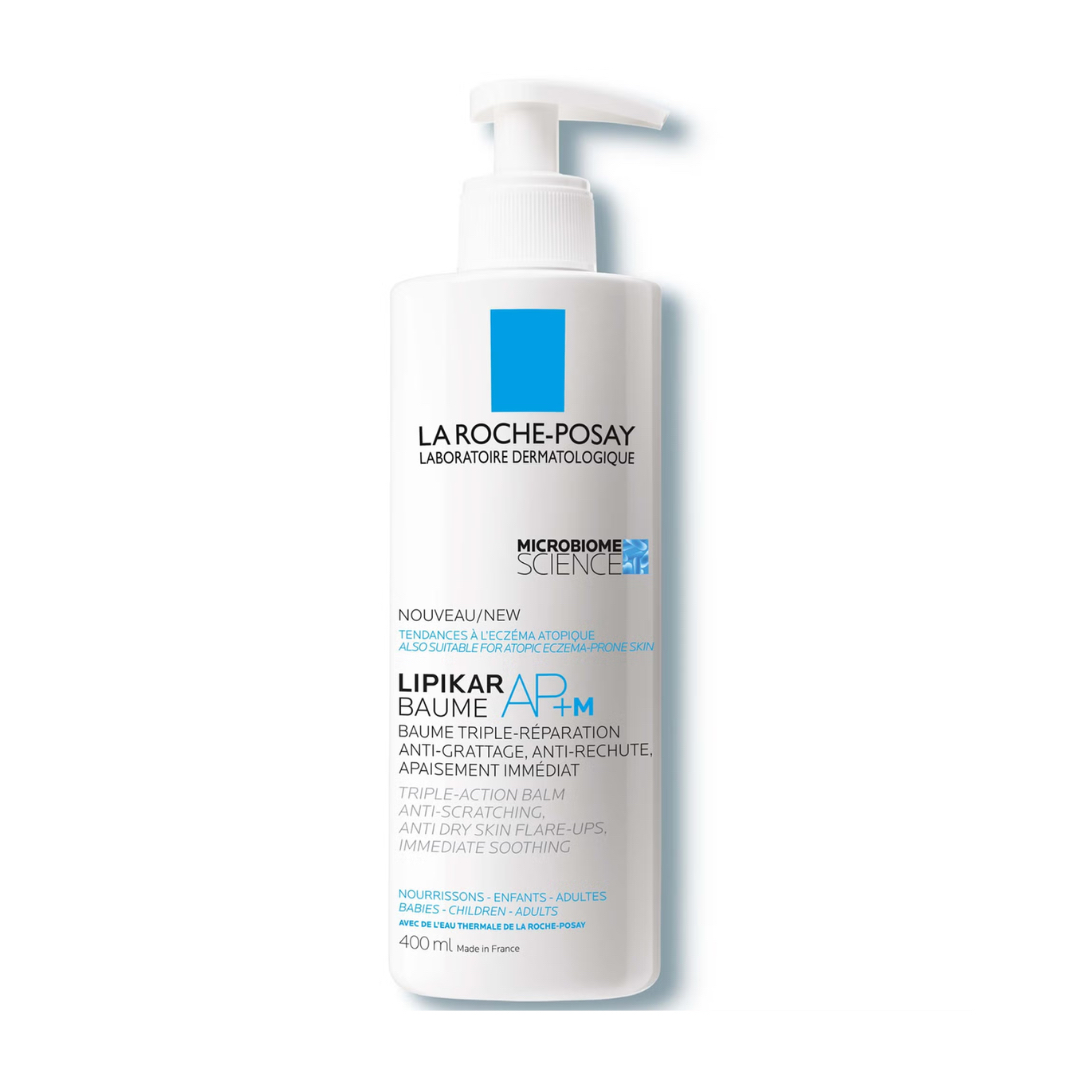
Reviewed by: Emma Stoddart
RRP: £25 for 400ml | Texture: Balm | Key ingredients: Thermal spring water, glycerin, shea butter
French pharmacy brand La Roche-Posay is known for its effective formulations that are non-irritating and especially well-suited for anyone following a skincare routine for sensitive skin. And the brand's latest product, AP+M, is no exception. While it’s not marketed as an aftersun lotion, this nourishing balm has been specifically formulated to soothe and repair dry, itchy skin – something that many of us experience after time spent in the sun.
Unlike other "aftersun" lotions, we will point out that this one doesn’t have a deliberate cooling effect – but we did fid that it deeply moisturiseed and comforted our skin. In our opinion, it's up there with the best La Roche Posay products of all time. This is thanks to the line-up of dermatologist-approved ingredients including hydrating glycerin, moisturising shea butter, and the brand’s soothing thermal spring water. It’s also fragrance-free and suitable for use on eczema-prone skin.
Buy if: You want something efficacious that's recommended by dermatologists
Avoid if: You want a cooling formula
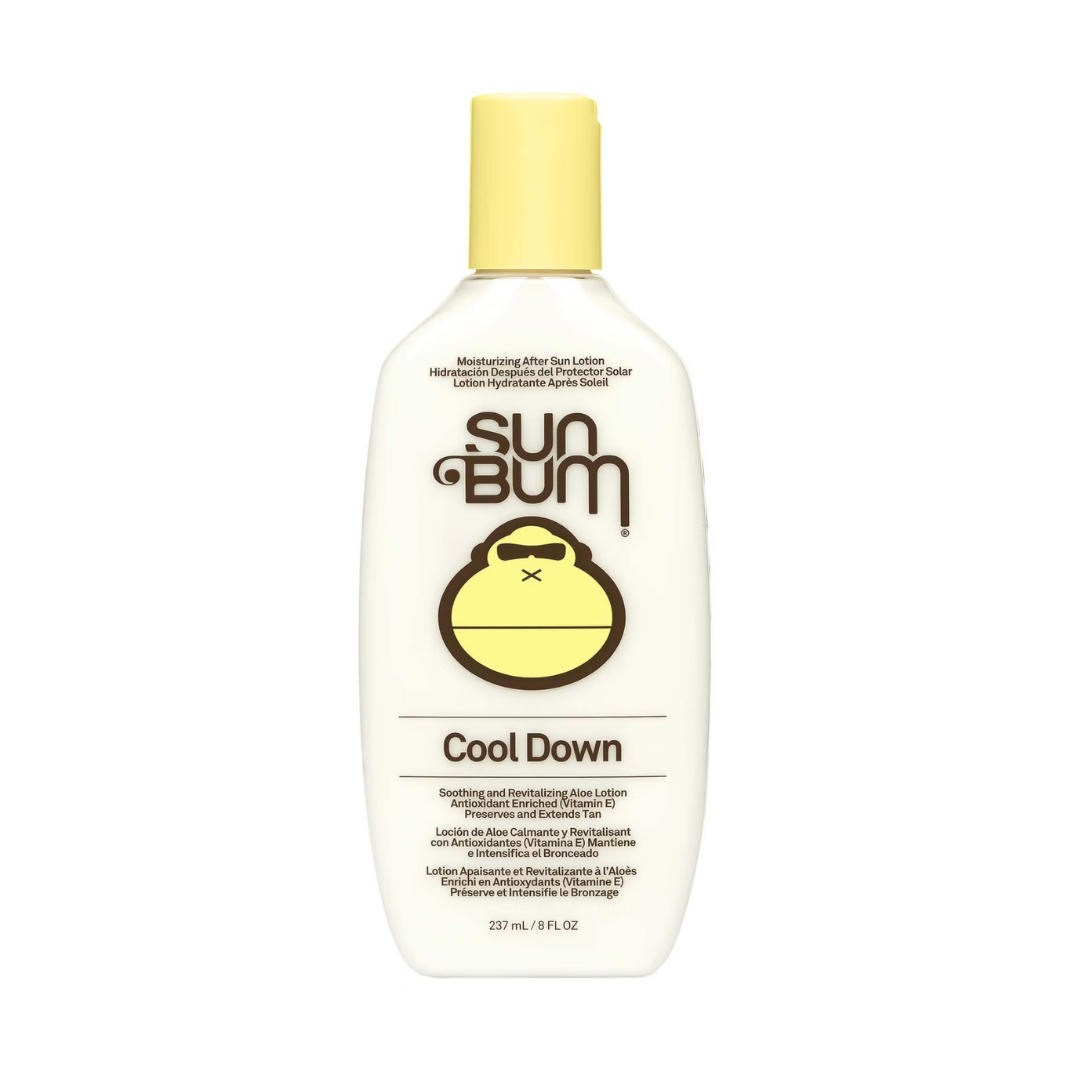
Reviewed by: Emma Stoddart
RRP: £17.99 for 237ml | Texture: Lotion | Key ingredients: Cocoa butter, vitamin E
This aftersun from US-born Sun Bum ticks all our boxes and then some. We love the easy-to-squeeze bottle, the subtle summery scent and the lighter-than-light formula that cools on contact with the skin and is jam-packed with conditioning ingredients. In fact, as far as aftersun formulas go, this is up there with the very best in the business. Aloe vera and cocoa butter hydrate and soothe skin while vitamin E repairs and replenishes moisture loss from sun damage – which we definitely noticed when applying it to our own skin.
If we’re completely honest, we’re not all that surprised to find that this aftersun is so darn good – considering the brand works between California and Florida, where temperatures soar. Initially created for their friends, the founders decided to spread the love and launch their products online – and for that, we thank them. As well as the ingredients mentioned above, the formula is also brimming with antioxidants and is both hypoallergenic and vegan-friendly. Like we said, it ticks all our boxes.
Buy if: You want a super cooling formula
Avoid if: You want something unscented or plain-smelling
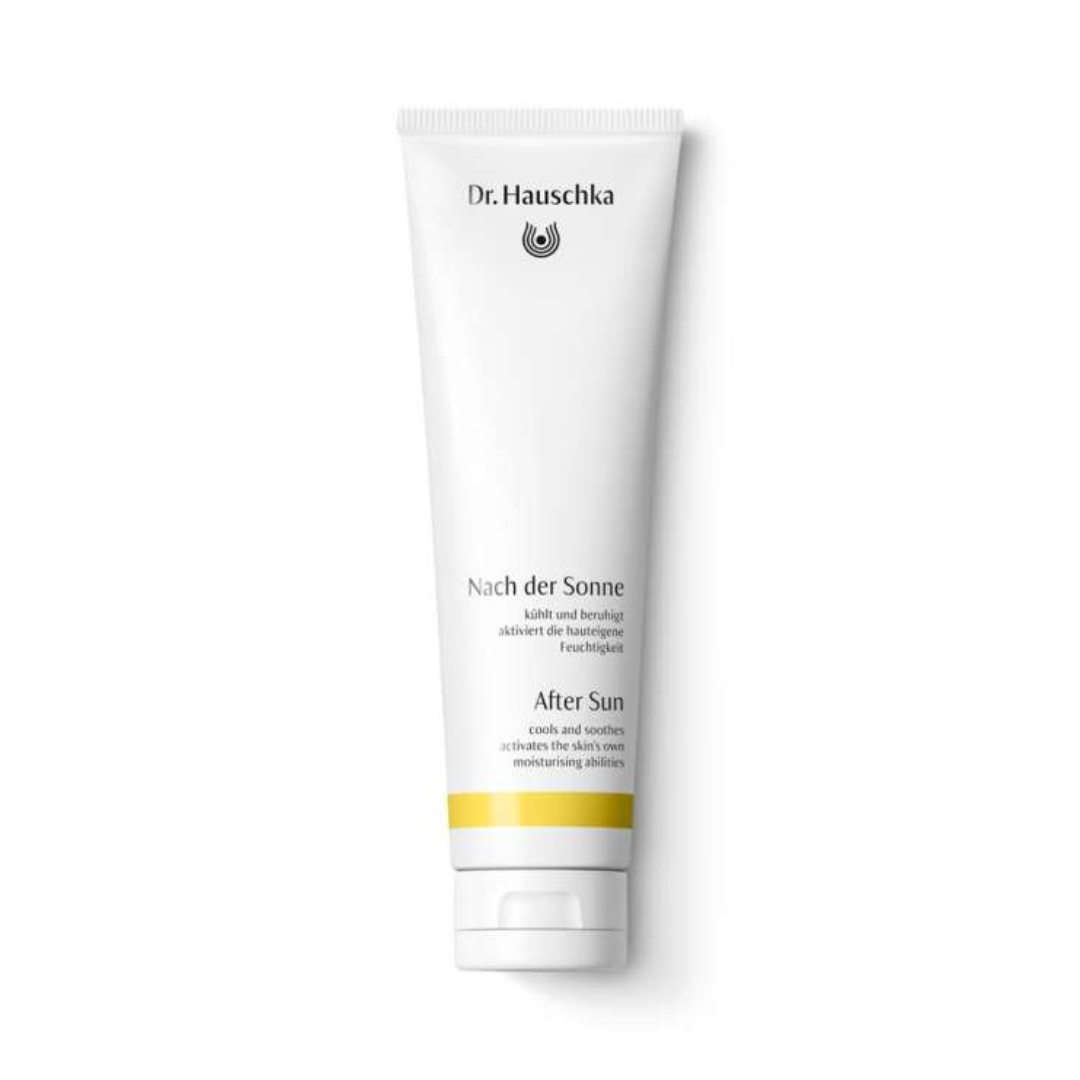
Reviewed by: Emma Stoddart
RRP: £27 for 150ml | Texture: Lotion | Key ingredients: Rose wax, anthyllis, ice plant, almond oil
The term "natural" has become a marketing tool in its own right and, because it’s an unregulated term, many products claim to be natural without actually being natural (here we mean free from synthetically derived ingredients). This aftersun lotion, from Dr Hauschka, is different. Formulated with 100% natural and/or organic cosmetics, it has been certified to NATRUE standard, so you can trust that the claims are accurate. It’s free from synthetic fragrances, dyes and preservatives, mineral oils and silicones.
As for what the natural skincare formula does contain – it’s laced with marigold and anthyllis to soothe sun-stressed skin as well as almond oil, shea butter and rose wax to moisturise and protect skin from drying out. The texture is rich and we found that it takes a little longer than most to fully absorb into the skin. But once it has been absorbed, we experienced seriously soothed and smooth limbs. One more thing to note is that this cream can transfer onto clothes – so we recommend from experience allowing five minutes to let it sink in before getting dressed.
Buy if: You prefer natural ingredients
Avoid if: You want something that absorbs quickly
How to pick the best aftersun lotion
There are countless aftersun lotions available on the market – which can make finding ‘the one’ a difficult task. Overall, most formulas do work. The difference being is that some are laced with extra skincare ingredients. Here are a couple of things to consider:
- Texture: As with the best face moisturiser, aftersun comes in a variety of textures – from lightweight lotions to heavier balms. Consider your texture preference before choosing an aftersun product.
- Ingredients: Look out for antioxidant-rich ingredients like Aloe vera and vitamin E as they can help prevent further skin damage. “Ceramides are also good at soothing inflamed skin,” says Dr Denning. Hydrating ingredients, such as hyaluronic acid and glycerin, also have the benefit of helping your skin hang onto a natural glow, if you're interested in how to make a tan last longer. Avoid any aftersun lotions that contain alcohol as it can dehydrate skin further.
Does aftersun lotion really work?
“There’s no quick fix to heal sunburn,” confirms Dr Denning. However, there are things that can help.” Enter: aftersun. To understand how aftersun lotion works, Dr Denning gives us a quick science recap: “Heat from the sun causes damage to the skin by irradiating it, which leads to the skin heating up, causing water loss, dehydration and inflammation."
Aftersun is specifically designed to support the skin's healing process. “It’s lightweight, meaning it allows heat to leave the skin and has a high water content to replace water loss in the skin," Dr Denning continues. "Plus, aftersun also contains soothing, anti-inflammatory antiseptic ingredients such as aloe, bisabolol, and allantoin."
Is aftersun or moisturiser better for sunburn?
According to Dr Denning, “aftersun is preferable to normal moisturiser, however any moisturiser is better than none.” Dr Shotter notes that it depends on the formulation. “If you have a good, gentle, soothing moisturiser that contains Aloe vera, then it doesn’t need to be targeted at sunburn," she says. "However, if reading an ingredients list is tricky, looking for a product marketed as ‘aftersun’ can be helpful.”
What should you not put on sunburn?
There are definitely things to keep off your sunburn to avoid further irritation. “Avoid anything that contains oil, petroleum or active ingredients – such as urea, glycolic or salicylic acid,” advises Dr Denning. “Anything that has added scent or alcohol in can worsen the inflammation and further dehydrate the impaired skin barrier – so should be avoided." In other words, stick to plain and simple formulas.
Meanwhile Dr Shotter notes that “you can occasionally find a small amount of alcohol in aftersun products as, on application, it can feel cooling when it evaporates – but it is not good for the skin at all.”
What’s the best way to treat sunburn?
“Sunburn can occur within 10 minutes of sun exposure for some people. When you first notice any signs of sunburn you should get out of the sun, find some shade and have a cool shower or bath to help cool the skin down in the first instance,” says Dr Denning. “Using cooling, gentle aftersun lotions will help to further cool the skin and also replace some of the moisture that will have been lost by being burned.”
In severe cases, Dr Shotter says that ibuprofen can be used to help ease the inflammation in the skin. “Drink extra water while the sunburn heals, as you can become dehydrated,” she adds.
Our expert panel
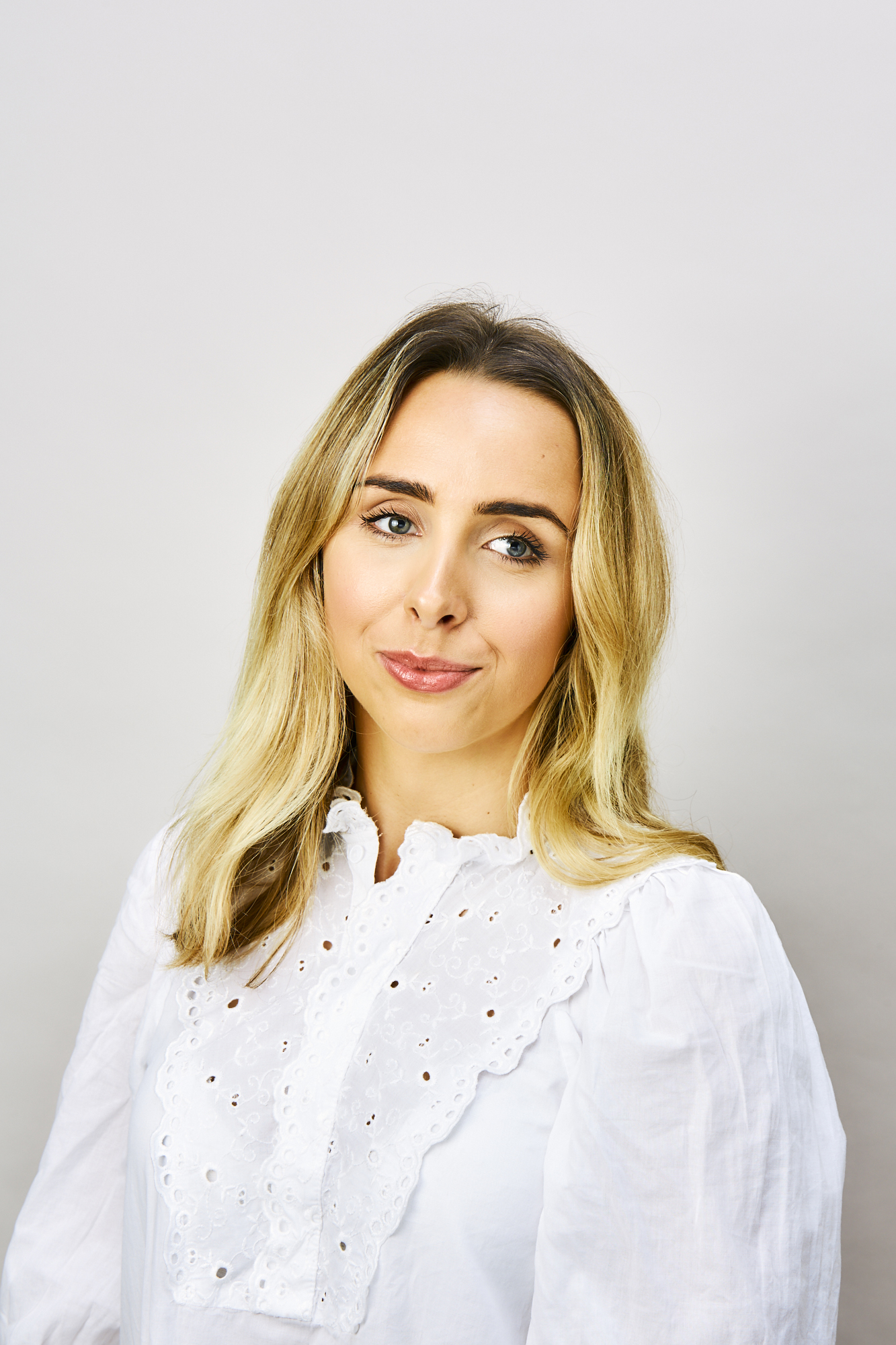
Emma Stoddart is a freelance beauty journalist who has worked for some of the UK’s top titles including NET-A-PORTER, Stylist and Grazia. Her experience covers both online and print, including producing editorial shoots with some of the industry’s biggest artists.

Dr Catharine Denning is an aesthetic doctor and the founder of the Marylebone Skin clinic.

Dr Sophie Shotter is an aesthetic doctor and the founder of Illuminate Skin Clinic. She also practises on Harley Street.
Sign up to our free daily email for the latest royal and entertainment news, interesting opinion, expert advice on styling and beauty trends, and no-nonsense guides to the health and wellness questions you want answered.
Emma Stoddart is a freelance beauty journalist and self-confessed skincare aficionado with over five years’ industry experience. Emma has worked for some of the UK’s top women’s titles including Net-A-Porter, Stylist and Grazia. Her experience spans online and print as well as producing editorial shoots with some of the industry’s biggest artists, including Val Garland. Asides from working with them behind the scenes, she’s also had the chance to interview the likes of Patrick Ta, Pat McGrath, and Sam McKnight for all their insider tips and tricks.